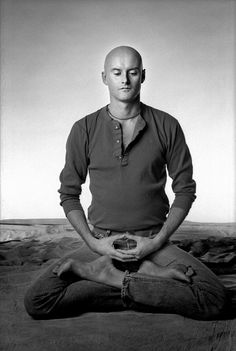|
TRANSLATE THIS ARTICLE
Integral World: Exploring Theories of Everything
An independent forum for a critical discussion of the integral philosophy of Ken Wilber
Adapted from: Ken Wilber: Thought as Passion, SUNY Press, 2003
The Seven Faces
of Ken Wilber
Frank Visser
Ken Wilber's work and person have many facets. I come to seven in all, the first four being more mental, the last three having a spiritual flavour:

-
THEORETICAL
The core of his writing is a theoretical stage-model of human development. He doesn't apologize for being theoretical or intellectual. On the contrary, it is assumed from the beginning that this is a valuable and meaningful activity. Wilber engages in dialogue with the many fields of social
science, developmental psychology, cultural anthropology, clinical psychology, etcetera.
- SYNTHETHICAL
However, from his earliest writings Wilber has tried to integrate different theoretical models, giving each its place in a larger context. The larger goal here is to formulate a big Theory of Everything, which covers all fields of human experience. His account is not vulnerable to postmodern accusations of Big Stories being no longer possible in our days, because Wilber doesn't stretch a partial truth to absolute proportions, as many grand theorists have
done before him, but tries to integrate all the various partial truths into one large
integral model.
- CRITICAL
Because he never loses sight of the big picture, he is accutely aware of any attempts to do just that: making partial truths (ecology, feminism, physics, holism) look like the one Truth. This
explains a strong critical line in all of his writing, which is motivated by one and the same goal: see and acknowledge partial truths as partial truths, nothing less, nothing more, but never confuse them with the Truth.
- POLEMICAL
This last of the mental aspects of his writing is understandable and justified when many years of disciplined theoretical and critical writing don't have much effect in the culture or subculture
at large, which seems to be swept away by either rationalism or regressionism. So a little polemic can stir up discussions and call attention to the real issues at hand. Some critics have found fault with Wilber's polemical footnotes in Sex, Ecology, Spirituality. Others really liked them.
- PANDIT
Wilber's intellectual work is inspired by a spiritual outlook on life. This is how he is fond of describing himself: as a modern day pandit, defending the spiritual outlook in a culture that is massively secularized. Essentially, he is therefore a religious philosopher. He once described his aim as: legitimizing Spirit in the modern world. More than any other spiritually inclined philosopher, Wilber has an
open eye for what science can contribute, but ultimately does not depend on science. In the end, Spirit is the only evidence for Spirit.
- GUIDE
Although he doesn't want to be considered a guru, there is a way some of his writings have a distinctive teaching or even guiding quality. The pointing-out instructions from the Nondual traditions become very helpful when Wilber formulates them (if you compare this to what
contemporary spiritual teachers are able to do in communicating the Dharma).
- MYSTIC
The deepest of the spiritual aspects in Wilber's writing is revealed when
he just describes his own experiences of the Divine. Especially in One
Taste this aspect comes very much to the foreground. He hasn't
stressed this aspect in his other writings, and rightfully so, because they have
to stand on their own. But the fact that he lives what he writes about
should serve as example for the many readers of his books that wonder:
spiritual development sounds great, but can it also be a reality in my
own life?
(c) 1998 Frank Visser
|

 Frank Visser, graduated as a psychologist of culture and religion, founded IntegralWorld in 1997. He worked as production manager for various publishing houses and as service manager for various internet companies and lives in Amsterdam. Books: Ken Wilber: Thought as Passion (SUNY, 2003), and The Corona Conspiracy: Combatting Disinformation about the Coronavirus (Kindle, 2020).
Frank Visser, graduated as a psychologist of culture and religion, founded IntegralWorld in 1997. He worked as production manager for various publishing houses and as service manager for various internet companies and lives in Amsterdam. Books: Ken Wilber: Thought as Passion (SUNY, 2003), and The Corona Conspiracy: Combatting Disinformation about the Coronavirus (Kindle, 2020). 